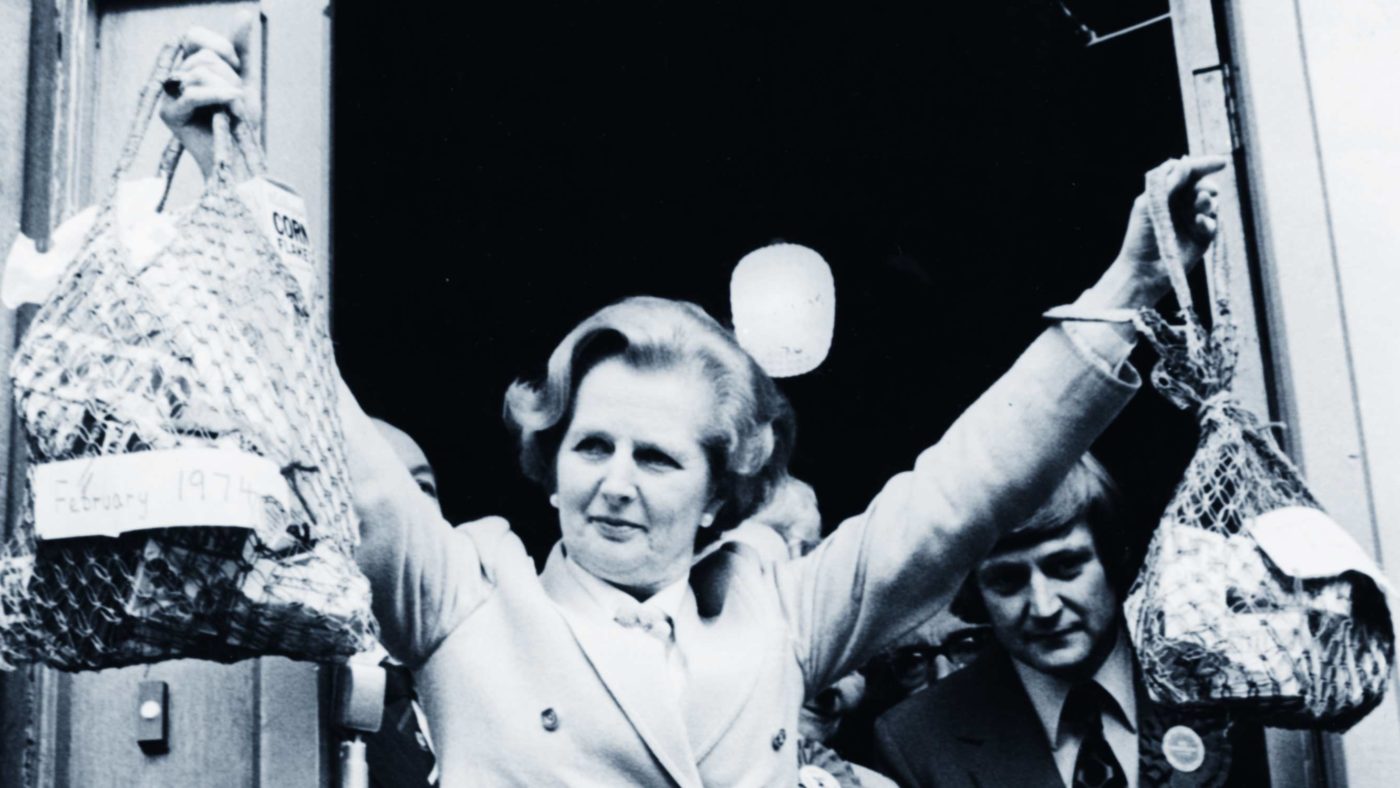Margaret Thatcher would have known exactly is wrong with the current Conservative party. It has forgotten who its people are and what it stands for. It has slipped its anchor.
When she was Prime Minister, my grandfather was the chairman of the National Union of Conservative Associations (whose successor organisation, the National Convention is right in the firing line of the leadership of Theresa May); and my father was a defence minister who, among other things flew her around during the 1979 election — which was 40 years ago today — when he was an airline pilot working for British Island Airways.
My biggest impression from that time is that the Conservative party knew who its people were, what it stood for and indeed what the point of the whole thing was. Lady Thatcher intended to govern for the whole country, but everybody knew where her origins and sympathies lay: with the middle and lower-middle class.
This should be no surprise. The brilliant economic historian Deidre McCloskey claims that it was the idea of the middle class and its values, the concepts of hard work, enterprise, innovation, thrift and patriotism practised amidst a proper, neighbourly moral framework, which lit the spark that created the Industrial Revolution in England and transformed the prosperity of mankind.
While Thatcherism mutated first under her and then under Tony Blair into an unfortunately irresponsible extreme version of market and social liberalism, culminating in the financial crisis and our present discontents, the idea endures.
The purpose of the Conservative party ought to be to create an expanding, prosperous, socially responsible middle class. And the way we solve poverty is lifting people up into the middle class. This is not about privilege or greed, but exactly the reverse. Membership of the middle class ought to be self-electing, based on behaviour, and not derived from barriers to entry.
This is also the lesson of the core texts of conservatism, the works of Edmund Burke and Adam Smith. (Incidentally, neither of them used the idiot-word capitalism, which is the language of the enemy, enshrining the interests of investors above other market participants, such as consumers. Smith used the term “commercial society”, which recognised the social and moral framework markets operate in and is much better.)
According to the first volume of Charles Moore’s biography, Lady Thatcher’s allegiance to the middle class was evident from when she first stood for Parliament in Dartford in 1950. She even had an understanding with the well-to-do local trade unionists because they were fighting for the underdog. “In particular, she was close to small businesses, and to the aspirations of young lower middle class people like herself born with no great advantages.”
In their turn, “the bank clerks, bank managers, solicitors’ secretaries, a man who worked in his family fireworking business, a woman who was PA to the big local builder” saw her as one of their own.
In a 1975 article for the Daily Telegraph entitled “To stand for Middle Class Values is No Bad Thing”, she wrote that “Sneering at ‘middle-class values”’is to insult the working class no less than the bourgeois.”
Just before the 1979 election campaign — the one where she went memorably went shopping with a TV camera in tow, asking the market trader “How much? Prices have gone up, haven’t they?” the party ran an advertisement in women’s magazines. It was a quiz which said:
Which of these people is more likely to know what it is like to do the family shopping?
James Callaghan
Your husband
Mrs Thatcher
Everybody knew the answer.
You find this sensibility again in a famous interview she gave to Sir Robin Day during the 1987 election where he accuses her of being divisive and abandoning the One Nation tradition. There is a long exchange in which he tries to interrupt, to no avail “Let me answer that question because I feel very strongly about it” and “you asked me what I know you call the gut question… Its gone right for the jugular, let me finish.”
Then, the peroration “More home ownership; far more share ownership; far more savings in building society accounts. This is what is building one nation — as every earner becomes a shareholder, as more and more people own their homes. No. We are getting rid of the divisions. We are replacing conflict with co-operation. We are building one nation through wider property-owning democracy. Please go ahead — I am sorry, but it was a pretty fundamental question.”
Of course, times change, and translating Thatcherism into a contemporary creed should absolutely not be seen as a mere cut-and-paste job. I personally don’t like too much specifically class-based rhetoric, which has had its day. We need a more unifying, culturally sensitive language now. She would likely have been perplexed by social media.
Some things, however, don’t change and it is one of the important ironies of middle-class values that they are constantly undermined from the inside by “the Blob”, the fashionable intelligentsia to be found among lobby groups, the media, universities and lurking in some large companies. One of the mistakes of the Theresa May/David Cameron Conservative party is it has pandered to the Blobbies too much.
No wonder Barnaby Lennon, the chairman of the Independent Schools Council, said this week that being middle class was increasingly portrayed by commentators as to be a sinner.
What would an updated Thatcherism look like? I would start with two tests. First, a pro-growth, pro- consumer one. Government ought to benefit ordinary people and understand their needs and desire to improve their lives, especially the lives of the younger generation. Second, a values test. It is not true, not has it ever been, that markets, individuals or societies function best in a selfish, devil-take-the-hindmost-framework. Large corporates need regulating. And taxing. Sympathy for our fellow human beings, for the disadvantaged and indeed for the environment is fundamental to leading a flourishing life.
Naturally, Lady Thatcher would plainly have sorted Brexit months ago.


